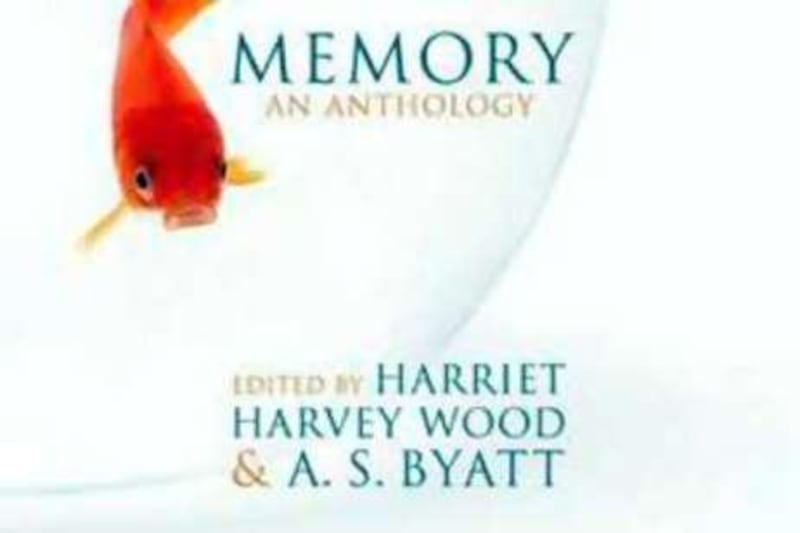The passages that do make the cut come together to form a whole that, like memory itself, is more suggestive than conclusive, but all the richer for it, Hephzibah Anderson writes.
Memory: An Anthology
Edited by Harriet Harvey Wood and AS Byatt
Vintage
Dh72
It's an unjust literary truth that the better an anthology, the more likely it is to dissatisfy. An inspired editor will pick entries intriguing and stimulating enough to make us hungry for more, and for that, we must go hunting other books. Happily for editors AS Byatt and Harriet Harvey Wood, their anthology's theme makes any such nagging feelings of incompleteness seem apt.
The book is divided into two sections, the first of which comprises a series of specially commissioned essays by the likes of poet Craig Raine and biographer Richard Holmes. Others draw on neurobiology, psychoanalysis and history, together mapping out current thinking on memory in an approachable, if sometimes dry, fashion.
The second part is pieced together from extracts - some a scant paragraph long - and divided into specific themes like childhood memories or false memories. Renaissance "memory theatres" contrast with the tricks deployed by London cabbies trying to master the Knowledge; the wisdom of Plato contrasts with the findings of Freud. In an introduction enlivened with her own memories, Byatt reminds us that Greeks believed Mnemosyne to be the mother of the Muses. "Art is all, at some level, both a mnemonic and a form of memory," she writes, which is maybe why the contributions from fiction writers are among the most potent.
William Maxwell, for instance, imbued his novels with the bright melancholy of remembrance, yet when it came to his own memories, he suspected that many were recollections of photographs rather than of actual moments. The wonderfully spooky writer, Hilary Mantel, likewise speaks not of Proustian moments but "Proustian cine-film". Intriguing almost-connections like this resonate throughout. While geological metaphors encourage us to think of events farthest in the past as being the hardest to reach, we all know that this isn't strictly so. For Vladimir Nabokov, childhood memories were by far the clearest, among them an image of his boyhood self, clambering across wet rocks and repeating a single English word: "childhood". He believed that Russian children born, like him, around the start of the 20th century were given a special capacity for early memories in order to make up for the chaos that would later destroy so much of what they knew.
The spectre of the sad and mysterious unravelling that we know as Alzheimer's is conjured up via a pair of venerable oldies. A biographer spies 76-year-old Ralph Waldo Emerson stumbling through a reading of one of his essays on memory, forgetting each sentence the moment he moves on to the next. Kingsley Amis, meanwhile, listens with admiration as his son Martin recalls the plot of a novel. It's one of Amis Senior's own, though he shows not a flicker of recognition.
The book closes with a few verses from Forgetfulness, in which the former American Poet Laureate, Billy Collins, uses the experience of forgetting how a novel ends as a metaphor for life's more unsettling acts of disremembering. Eventually, it comes to pass that 'the moon in the window seems to have drifted / out of a love poem that you used to know by heart.' There are, necessarily, omissions in this anthology. Though you'll find Proust, Italo Calvino, and the 11th-century philosopher, Abu Ali Ibn Muhammad Miskawayh, the inclusion of Cyril Connolly, say, or the artist Gwen Raverat, suggests a certain British parochialism. Some of the most fascinating writing on memory's relationship to language and the body derives from Holocaust memoirs, yet Primo Levi and Aharon Appelfeld are passed over in favour of Eva Hoffman, whose piece is far from vivid. Still, the passages that do make the cut come together to form a whole that, like memory itself, is more suggestive than conclusive, but all the richer for it.






